Does one die quickly once infected with AIDS?
AIDS is a viral infection disease, the virus is unique in that it directly attacks the body's immune system, as the body's main system for fighting off external infections, the immune system, if attacked and destroyed by an external virus, eventually loses its normal function, the body loses its protection, and a variety of infections and tumors ensue, with most patients dying as a result of these serious complications.
The destruction of the immune system by AIDS is a chronic process for two main reasons.
First, the virus proliferates and destroys immune cells there is a process, the virus enters the human body, the immune system is not tied up, there will also be a certain immune response occurs, about three months or so the appearance of antibodies, whose function is mainly to anchor the virus and joint cell phagocytosis of the virus, part of the AIDS virus can be clear, so this process is not a smooth sailing for the virus.
Second, the number of easy lymphocytes in the human body is in a dynamic process of change, the bone marrow in the hematopoietic system, constantly generating lymphocytes to replenish the blood, in the lymphocytes are damaged, the number of declining, the contact will speed up the process of hematopoiesis, constantly replenish the total number of lymphocytes.
Therefore, AIDS infection is a process of this and that, only in the later stages, the virus has an absolute advantage, the lymphocyte destruction rate is too fast, the hematopoietic system fails, there is no way to replenish the destroyed lymphocytes in the blood in a timely manner, and the body's immune system eventually collapses.
Therefore, HIV infection is basically not fatal in the short term, and the course of the disease is for the most part a chronic one.
It is important to mention that AIDS patients are not born with original sin, do not discriminate against them just because they are infected by sexually transmitted diseases or drug addiction, their lives are colorless and they live in fear and regret every day, the symptoms and pain of the disease have already caused them a lot of pain, and in the face of the disease, all the patients are victims, they need to be treated normally and live with dignity!

I specialize in AIDS prevention and I'll answer that.

AIDS is an infectious disease caused by the AIDS virus (HIV), which attacks the CD4T lymphocytes, the most important cells in the human immune system, causing the body to lose its immune function. Currently, the main treatment is "cocktail therapy", AIDS is currently in a measurable and controllable state, but there is no cure. HIV is an extremely scary virus, if unfortunately infected with HIV, will it die soon?
Of course, HIV infection does not cause immediate death. Generally speaking, the longer the incubation period, the longer the HIV-infected person lives. The length of time an HIV-infected person survives varies from person to person, with the average incubation period for HIV in the human body being eight to nine years. According to research, the subtype of HIV infection, individual genetics and health differences, and quality of medical care all have an impact on how long people with AIDS live. Healthy people generally go through the following four stages of HIV infection:
I. Acute infection periodA reaction caused by the stimulation of the organism after HIV has attacked the body. Initial symptoms such as fever, swollen lymph nodes, malaise, sweating, nausea, vomiting, and diarrhea may occur. Occasionally, acute aseptic meningitis occurs, which is characterized by headache, neurological symptoms, and meningeal irritation. Symptoms in this phase are often mild and easily overlooked. When such peripheral symptoms such as fever appear about 4 weeks later, serum HIV antibodies may show a positive reaction. Thereafter, a clinically variable length of relatively healthy, asymptomatic incubation period occurs.
II. Incubation periodThe infected person may not have any clinical symptoms during this period, but the virus continues to multiply and has a strong destructive effect. It refers to the time from the beginning of HIV infection to the appearance of clinical signs and symptoms of AIDS. The average incubation period of AIDS, generally 2-10 years.
III. Pre-AIDSA period of time after the incubation period when AIDS-related signs and symptoms begin to appear until the development of typical AIDS. Enlargement of lymph nodes during this period usually lasts for more than six months; weight loss of more than 10%; periodic low-grade fever lasting for several months; night sweats; and the appearance of hairy white spots in the mouth are important clues for early diagnosis of AIDS.
IV. Typical AIDS periodAlso known as lethal AIDS, it is the final stage of HIV infection. This stage is characterized by three basic features: severe cellular immunodeficiency; the occurrence of various fatal opportunistic infections; and the occurrence of various malignant tumours. In the final stage of AIDS, the immune function collapses completely, making it easy to develop various fatal opportunistic infections and malignant tumors, leading to death.
If diagnosed with HIV infection, do not give up on yourself, should be actively treated, can prolong life, the latest research shows that, once confirmed infected with hiv, timely use of medication, adhere to, almost will not affect the life expectancy, and can be the same as uninfected people live.
I am in the CDC professional to do AIDS prevention and treatment work, there are about AIDS-related issues welcome to pay attention to private letter advice Oh, thank you.
Hello! Have a nice holiday!

First of all, please put your heart in the stomach ~ rest assured. HIV patients in normal circumstances, is not going to die soon, you do not have to obsess all day, relax, regular life, proper exercise, follow the doctor to take medication, follow-up visits in a timely manner, ...... then your life expectancy is no different from a normal person, or even more than a normal person who does not abide by the guidelines. You are a normal person, no one has the right to isolate you from normal people. Gratitude, self-esteem, self-confidence, self-love, firmly grasp these four treasures, you will live a hundred years!
I have already answered many times in detail on the previous page about all aspects of HIV, so I will not repeat myself if you don't want to move your golden fingers to read it. In addition, a few teachers upstairs, Dade also made a detailed answer for you, I hope you read seriously, analyze in detail, compare yourself, choose the best. Thank you for your question, I wish you good health!

I am a doctor in the Department of Infectious Diseases of Beijing You'an Hospital, and I have been fighting on the front line of AIDS treatment in recent years. I can tell you very responsibly, infected with AIDS, although very unfortunate, but from death is actually very, very far away. At least over the years in my treatment of patients, as long as you follow the doctor's instructions, "want to die" is not so easy, unless they "looking for death"!
Without explaining too much, you can follow my header image number and leave a comment in the comments section of the article if you need to.
I'll take some time out of my day to answer questions online.
AIDS (Acquired Immune Deficiency Syndrome: AIDS), from its full name, it can be inferred that this is a relatively slow-acting lethal virus, because HIV itself does not directly cause the death of the host, it only causes the death of an important cell in the host's immune system to outpace the rate of regeneration of this cell by the host's bone marrow system, as it utilizes this cell for its own reproduction, ultimately leading to the death of the host from other opportunistic infections. This ultimately causes the host to die from other opportunistic infections. So the simple answer is that you don't die quickly from AIDS, but, and I must say but, this is relative to the speed of death from other serious infectious diseases, after all, the term "quickly" is probably defined very differently by different people, is it by the hour, or by the day, or by the month, or by the year?
Why not take a look at the average time it takes for some well-known infectious diseases that can kill you to kill the patient, these are the approximate times of death without any treatment, anything that takes longer than a month to die is considered a slow dying infectious disease and does not fall into the category of medically quick deaths.
Cholera 5 to 10 days
Smallpox 10~16 days
Pneumonic plague 1~6 days
Adenosine plague 3~8 days
Spanish Pandemic 15-20 days
Sars 2 to 14 days
Ebola 7 to 14 days
Rabies 7 days to a year, usually within a month
Mad cow disease 4 to 6 years
Tuberculosis 1 year to 3 years
AIDS 1 year to 20 years
It is important to warn that in 2011, the Ministry of Health released the results of the "Fifth National Tuberculosis Epidemiology Field Survey", which showed that there are more than 5 million active tuberculosis patients in China, while the number of people infected with tuberculosis bacilli is more than 500 million, accounting for 45% of the country's total population! And AIDS combined with TB is a modern infectious disease killer, because AIDS weakens the host's immune system, making them more susceptible to a variety of other infectious diseases, especially TB, which is now making a comeback, which is the most problematic thing when treating AIDS patients. And statistical data found that HIV-positive patients infected with tuberculosis bacilli have a 30-fold higher incidence of tuberculosis than HIV-negative people. So the health of other people in the patient's living and working environment and their attitudes toward receiving immunoprophylaxis, such as whether or not they're willing to pay out of pocket every year to get a flu shot and so on, are factors that have a profound effect on the longevity of an HIV patient who's receiving regular treatment.
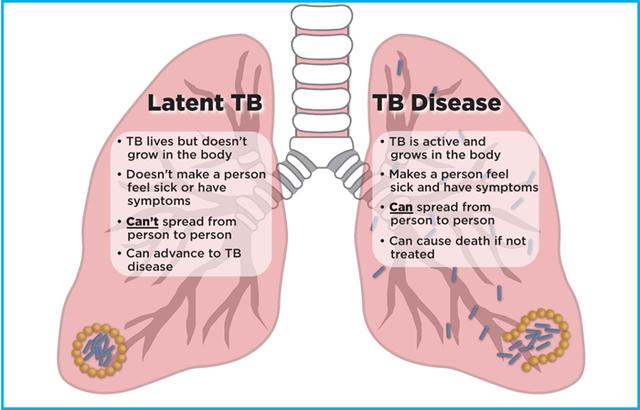
ILLUSTRATION: Mycobacterium tuberculosis, a well-known slow bacterium, can live in the host's body for long periods of time, and once the host's immune system has become less functional it can strike back, killing the host and spreading itself at the same time.
The country are afraid or did not take the initiative to check, if found early, eat free drugs and normal people are no different! cd4 fell to a very low level, and then go to the treatment is a bit of a problem, it is very easy to drug-resistant, this is very scary, I found that the cd4 is 112 before taking medication, three months after the re-examination, the results of the cd4 is only 6, know that the drug-resistant, replaced with second-line drugs, only today rose to 104. this process is very disturbing! This process is very disturbing, and also very dangerous! I've been hospitalized for infections and had contact with death! I know it's hopeless, but I'm still trying to live and I know there is hope if I pull through!!!! Working with my fellow sufferers, I really hope we can all wait until the day of cure! So I hope people don't discriminate and get tested early after having had a high risk, or when they have symptoms!!!! Thank you all, 😂😂😂😂😂, and I hope scientists work on cheering up sooner rather than later!!!!
Today there is no cure for AIDS, which is a disease that is mainly caused by the destruction of the body's immune system. The disease itself does not directly cause death. It mainly destroys the immune system, which can lead to complications when a new virus enters the body. This is why it is important to prevent viral infections. This can lead to irreversible consequences, such as cold and flu viruses.
initial stage
The human body starts to fight against the disease as soon as the disease virus enters the body. It takes time for the virus to multiply in the body.
In the early stages of the disease, the immune function of the infected population is not yet severely damaged, so there are no obvious symptoms, and these people are called infected with the virus. This initial period is called the incubation period, or the "asymptomatic period".
onset
Once the immunity of the infected person has been damaged to a certain extent, some other germs will take advantage of the situation and cause the emergence of a variety of diseases, which are generally called opportunistic infections, such as severe diarrhea, pneumonia, some cancers, and so on, and at this time the infected person will become a patient with AIDS.
The time from infection to AIDS varies from a few months to a few years, mostly from two to ten years. If they have not yet reached the onset of the disease, carriers of the virus can live like normal people. And, nowadays, antiviral treatment can prolong the patient's life, so people infected with the virus should not give up easily, and need to do everything possible to delay the onset of the disease.
Many people who have AIDS have this concern, will they die soon after getting AIDS?
This is something that is often asked by patients in practice, and as a staff member working in the field of HIV prevention and treatment, I can tell you:Normally, you don't die quickly from AIDS.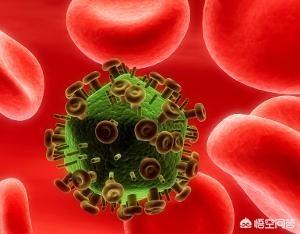
The life expectancy of people living with HIV is now similar to that of a normal person, from the time of detection, through treatment, to the onset of clinical symptoms. In other words, more and more AIDS patients are able to live to a "ripe old age" after standardized antiretroviral treatment. Therefore, there is no need to worry too much about life expectancy even if you are infected with HIV.
However, AIDS is always a contagious disease, the development of the disease will have a process, the destruction of the body's immune system is always there, because it is gradually eating away at the immune system, attacking the body's CD4 + T lymphocytes, leading to a decline in the patient's immune system, and then infected by external germs or tumors, and then finally die as a result.
 Therefore, when you learn that you are infected with HIV, remain calm and do not give up hope. The State has invested a great deal of financial and human resources in the prevention and treatment of AIDS, and has provided free antiretroviral drug treatment for AIDS patients. At the same time, the "four exemptions and one care" policy has been introduced to provide relevant protection for AIDS patients.
Therefore, when you learn that you are infected with HIV, remain calm and do not give up hope. The State has invested a great deal of financial and human resources in the prevention and treatment of AIDS, and has provided free antiretroviral drug treatment for AIDS patients. At the same time, the "four exemptions and one care" policy has been introduced to provide relevant protection for AIDS patients.
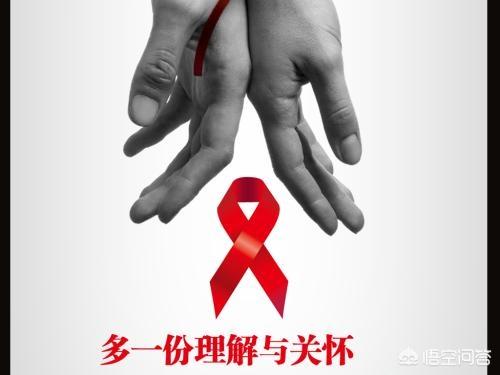 To sum up, under the care of the whole community and with standardized antiretroviral treatment, the life expectancy of AIDS patients will not be affected too much, and they will not die soon if they are infected with AIDS.
To sum up, under the care of the whole community and with standardized antiretroviral treatment, the life expectancy of AIDS patients will not be affected too much, and they will not die soon if they are infected with AIDS.
Learn more about health and welcome to Rambling Public Health!
At present, the medical profession has not yet found any method that can completely cure AIDS, and AIDS patients have to face this cruel reality. Since there is no cure for AIDS, people will ask: How long do AIDS-infected people live?
Wu Zunyou, Director of the Center for STDs and AIDS of the Chinese Center for Disease Control and Prevention (CDC), said: In 1981, when the first case of HIV infection was discovered worldwide, mankind had almost no knowledge of the disease, and there was no medical treatment for it. At that time, AIDS infected people could live for 10 years on average. 1987, after the application of the first AIDS drug, the survival time of patients increased by another 10 years. 1996, Chinese scientists, Prof. He Dayi invented a cocktail treatment for AIDS, a variety of drugs in combination with the application of a person infected with AIDS, as long as the long-term persistence of medication, can live for forty years. With the development of our medicine technology and the reduction of toxic side effects, a person who is infected with AIDS at the age of 20, and who is detected through timely testing and receives treatment, can live for another 55 years on average. In other words, if a young person, infected with AIDS, carries out antiretroviral treatment early with modern technology to maintain the number of CD4 cells at more than 500 per cubic millimeter, the life expectancy of a person infected with HIV (AIDS virus) can reach 75 years, which is almost the same as our average life expectancy.
The fact that the average life expectancy of AIDS patients can be extended to nearly the same level as that of normal people is not only due to the advancement in technology, but also a very important factor, that is, the mentality of the patients. After knowing that they are infected with HIV, many people will love life more, correct some bad habits in the past, and at the same time strengthen the monitoring and testing of their health. In this way, even if there are some diseases can be detected at an early stage, the chance of cure is much higher than the late stage. People who are not infected with HIV, however, tend to neglect their health and even more so their healthy lifestyles, and the disease is often found to be in an advanced stage. It is possible for people with HIV to be blessed by the disease.
Worldwide, the likelihood of an AIDS vaccine in the short term is still relatively small at this point. If there is a vaccine and a cure, AIDS can be best prevented. But at present, in the absence of a vaccine and a cure, the best method of prevention is antiretroviral treatment.
Thanks for inviting me, HIV infection does not usually lead to a quick death. AIDS, whose full name is Acquired Immune Deficiency Syndrome, is a very dangerous disease caused by HIV infection.
HIV attacks the body's immune system, destroying the body's immune function and ultimately leading to a loss of immune function. As a result, the human body is prone to various infections and malignant tumors.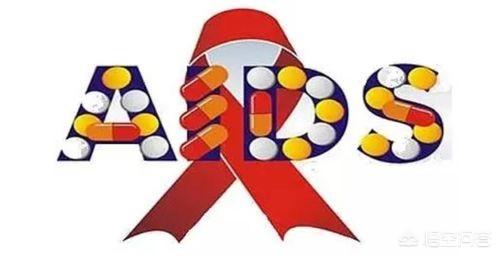
AIDS has a long incubation period.
It takes years or decades or even longer for HIV infection to develop into AIDS. The average incubation period is about 8-9 years, and it is possible to work and live without any symptoms before developing AIDS.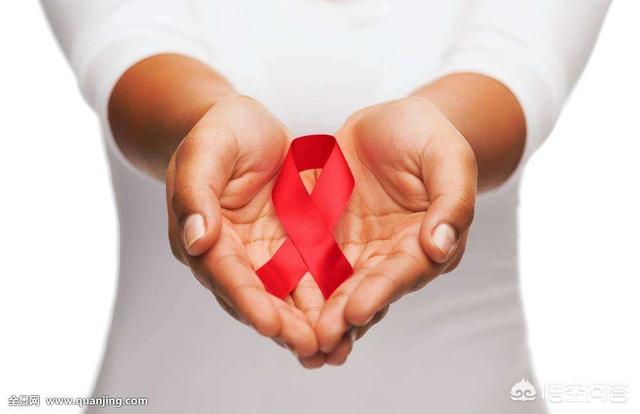
Key Symptoms of AIDS:
Generally, the initial symptoms are like the common cold and flu, with generalized fatigue and weakness, loss of appetite, fever, etc. With the aggravation of the disease, the number of symptoms increases day by day, such as Candida albicans infection of the skin and mucous membranes, herpes simplex, herpes zoster, purple spots, blood blisters, bruises, etc.; and later gradually invade the internal organs, with unexplained persistent fever, which can be as long as 3 to 4 months; and coughing can also be seen, Shortness of breath, dyspnea, persistent diarrhea, blood in stool, liver and spleen enlargement, and complications of malignant tumors, etc., and finally die of systemic failure.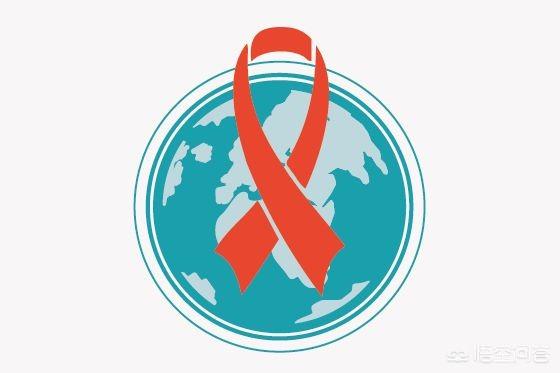
AIDS lies primarily in prevention, and the main preventive measures are:
1. Adhere to cleanliness, refrain from prostitution and soliciting prostitutes, and avoid premarital and extramarital sexual behavior.
2. Strictly prohibit drug use and do not share syringes with others.
3. Do not share personal items such as toothbrushes, razors, and shavers.
4. The use of condoms is one of the most effective preventive measures against STDs and AIDS in sexual life.
5. Avoid direct contact with the body fluids of AIDS patients.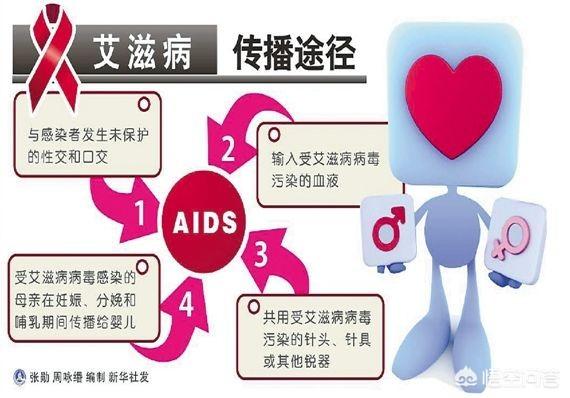
For more on health, follow the headline, The Little Lancet.
This question and answer are from the site users, does not represent the position of the site, such as infringement, please contact the administrator to delete.